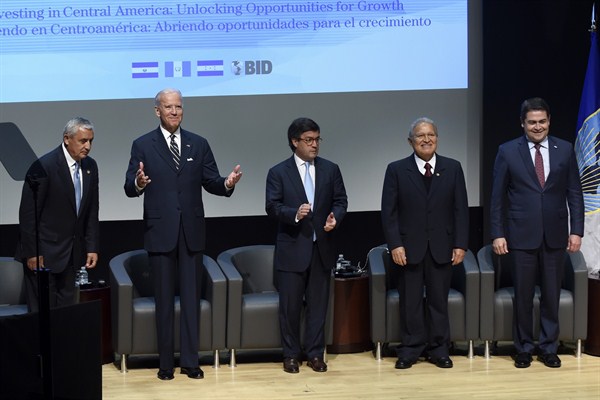During his remaining time in office, U.S. President Barack Obama is pushing hard to finalize the Trans-Pacific Partnership (TPP), the major free trade deal between the United States and 11 Pacific Rim countries. The Obama administration is also intent on providing significant new aid to reduce violence, support development and build institutions in Central America. At first blush, the two appear unrelated; the TPP includes no Central American countries. Yet the deal’s final shape may actually play an important part in determining whether the Obama administration will meet its policy and security goals in Central America, since it could unintentionally impede the region’s economic development.
The historic signing of Guatemala’s peace accords in 1996 formally ended the last of the nasty civil wars that killed, maimed and displaced hundreds of thousands of Central Americans and set back regional development for millions more. Peace brought optimism and expectations for new prosperity. Leaders expressed overt faith in trade and investment to transform societies.
A U.S. free trade agreement with the Central American countries of Costa Rica, El Salvador, Guatemala, Honduras and Nicaragua, plus the Dominican Republic, known as CAFTA-DR, was the result. It has been a modest success since its passage in 2005. The agreement integrated its signatories into U.S. supply chains, particularly in textiles, although unyielding U.S. protection of certain products, including sugar, reduced the potential for more regional job creation.

